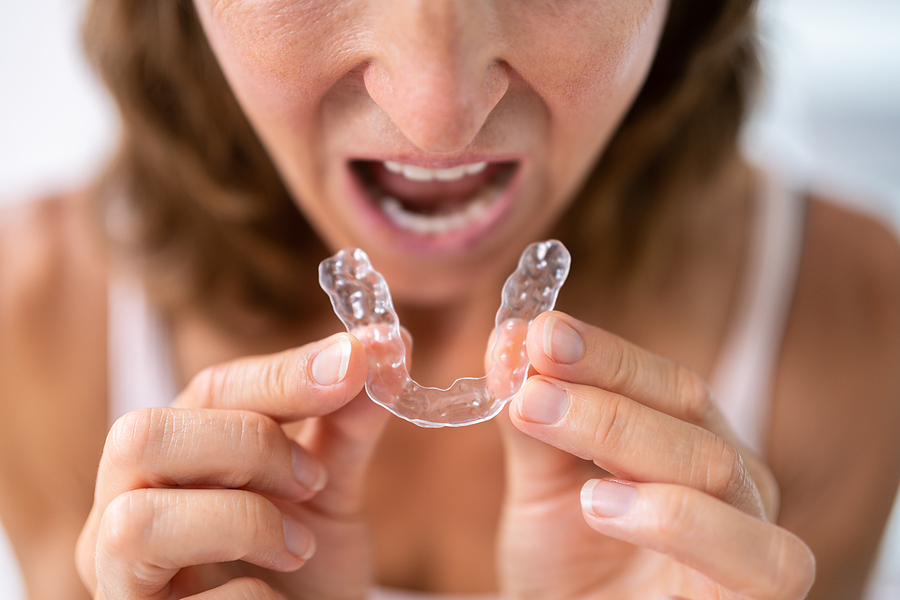Welcome to our dental blog! Today, we are diving into the world of dental crowns. Whether you've heard about them before or have no idea what they are, this post will provide all the information you need. Dental crowns can be a game-changer when it comes to restoring your smile and maintaining optimal oral health. So grab a seat, put on your reading glasses, and let's explore everything you need to know about dental crowns!
Reasons for Needing a Dental Crown
A dental crown, often referred to as a cap, is a prosthetic device custom-made by skilled dentists to restore the functionality and aesthetics of damaged or decayed teeth. Crafted using durable materials such as porcelain, ceramic, metal alloys, or a combination thereof, this versatile dental restoration fits snugly over the affected tooth like a protective cover. A dental crown is a common solution for many dental issues. There are several reasons why you may need a dental crown, and each situation is unique to the individual.
- One reason for needing a dental crown is to protect a weak tooth from further damage. If you have a tooth that has been significantly weakened due to decay or trauma, a crown can provide added strength and support.
- Another reason for needing a dental crown is to restore the shape and size of your teeth. Sometimes, teeth can become worn down or chipped over time, making them appear smaller or misshapen. A crown can be placed over the tooth to restore its natural appearance.
- If you have undergone root canal treatment, you may also need a dental crown. Root canal therapy involves removing infected tissue from inside the tooth, which can leave it more vulnerable to breakage. A crown can help protect and strengthen the treated tooth.
- Additionally, if you have large fillings in your teeth or multiple fillings in close proximity, they may not provide enough support on their own. In these cases, placing crowns on these teeth can help distribute the biting force more evenly and prevent further damage.
- If you have severely discolored or stained teeth that cannot be effectively treated with other cosmetic procedures such as whitening or veneers, a dental crown may be recommended as an option for improving your smile's appearance.
There are various reasons why someone might need a dental crown - whether it's for protection against further damage or restoration of their natural smile. Your dentist will evaluate your specific needs during an examination and recommend whether getting a dental crown is right for you!
The Procedure for Getting a Dental Crown
The procedure for getting a dental crown typically involves several steps. First, the dentist will examine your tooth to determine if a crown is necessary and discuss the treatment plan with you. This may include taking X-rays to assess the health of the tooth's roots and surrounding bone. Next, any decay or damage to the tooth will be addressed. If needed, the dentist will remove any decayed or weakened areas before preparing the tooth for a crown. This may involve filing down some of the enamel to make room for the crown. After that, an impression of your prepared tooth will be taken using a putty-like material or digital scanner. This impression will serve as a model for creating your custom-made crown.
While waiting for your permanent crown to be fabricated in a dental lab, you may be fitted with a temporary one to protect your prepared tooth. Once your permanent crown is ready, it will be checked for fit and color match before being cemented into place on top of your prepared tooth.
Getting a dental crown is generally a straightforward procedure that can help restore both function and aesthetics to damaged teeth. It's important to follow proper oral hygiene practices after receiving a dental crown to ensure its longevity and maintain optimal oral health.
Conclusion
In this article, we have explored the various reasons why someone might need a dental crown and the procedure involved in getting one. Dental crowns are versatile and effective solutions for a range of dental issues, including tooth decay, cracked or damaged teeth, and cosmetic enhancements.
Whether you require a dental crown to restore your oral health or improve the appearance of your smile, it is crucial to consult with a qualified dentist who can assess your specific needs and guide you through the process. Remember that prevention is always better than cure when it comes to maintaining good oral hygiene.
If you suspect that you may need a dental crown or have any concerns about your dental health, don't hesitate to schedule an appointment with your dentist. They will be able to provide personalized advice tailored to your situation and help you achieve optimal oral health.
Taking care of our teeth is essential for both our overall well-being and self-confidence. By understanding when a dental crown might be necessary and knowing what the procedure entails, we can take proactive steps toward ensuring healthy smiles for years to come.
So remember: if you're experiencing pain or discomfort in one of your teeth, notice signs of damage or decay, or simply want to enhance the appearance of your smile – it's time to consider whether a dental crown could be the right solution for you. Take control of your oral health today!
More Blog Posts
Office Hours
MON7:00 am - 4:30 pm
TUE7:00 am - 5:00 pm
WED7:00 am - 1:00 pm
THU8:00 am - 1:00 pm
FRI9:00 am - 1:00 pm
SAT - SUNClosed






